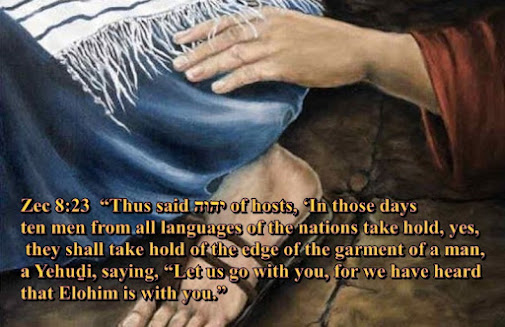Sefaria Sha'ar HaEmunah VeYesod HaChasidut, Introduction to Beit Yaakov 14
Sefaria Sha'ar HaEmunah VeYesod HaChasidut, Introduction to Beit Yaakov 14
About This Text
Current Version
Current Translation
Despite the supreme level reached by R. Shimon, which he sought to convey through the teachings of the Zohar, with his parting, the depths of his wisdom was hidden. Albeit there were “masters of mysteries” in every generation, they concealed their knowledge and shared it only with great trepidation. The author mentions several sages, and historical periods, in which the Torah’s esoteric teachings were far more concealed than revealed.
With the passing of R. Shimon Bar Yohai, the esoteric dimension of Torah went underground, leading the Sages of subsequent generations to convey their knowledge in riddles and parables. Even subsequent Kabbalistic texts were written enigmatically. Yet, within these texts lies a genuine esoteric tradition.
As if to prove his words, R. Gershon Henokh devotes the next eight chapters to a discussion of esoteric truths found in the writings of Maimonides, and shows how they correspond to teachings in the Zohar. His claim is that Maimonides was heir to a true (though perhaps partial) mystical tradition, and dressed it in the garments of Aristotelian philosophy for the sake of the intelligencia of his time, who were steeped in Greek and Arab medieval philosophy.
According to R. Gershon Henokh, those who imagine Maimonides to have been a strict rationalist and anti-mystic have only a superficial understanding of his philosophy; for Maimonides himself writes that he intentionally hid and scattered the truth piecemeal throughout his writings, and that one needs a comprehensive view of the texts in order to discern his true intentions – something that R. Gershon Henokh seeks to convey to the reader in the following chapters.
Click to download: Tehillim Ohel Yosef Yitzchak - Apps on Google Play
Dr. Joshua Kulp
Five possessions did the Holy Blessed One, set aside as his own in this world, and these are they: The Torah, one possession; Heaven and earth, another possession; Abraham, another possession; Israel, another possession; The Temple, another possession. 1a) The Torah is one possession. From where do we know this? Since it is written, “The Lord possessed (usually translated as ‘created’) me at the beginning of his course, at the first of His works of old” (Proverbs 8:22). 2a) Heaven and earth, another possession. From where do we know this? Since it is said: “Thus said the Lord: The heaven is My throne and the earth is My footstool; Where could you build a house for Me, What place could serve as My abode? (Isaiah 66:1) And it says: “How many are the things You have made, O Lord; You have made them all with wisdom; the earth is full of Your possessions” (Psalms 104:24). 3a) Abraham is another possession. From where do we know this? Since it is written: “He blessed him, saying, “Blessed by Abram of God Most High, Possessor of heaven and earth” (Genesis 15:19). 4a) Israel is another possession. From where do we know this? Since it is written: “Till Your people cross over, O Lord, Till Your people whom You have possessed” (Exodus 15:16). And it says: “As to the holy and mighty ones that are in the land, my whole desire (possession) is in them” (Psalms 16:3). 5a) The Temple is another possession. From where do we know this? Since it is said: “The sanctuary, O lord, which your hands have established” (Exodus 15:17”, And it says: “And He brought them to His holy realm, to the mountain, which His right hand had possessed” (Psalms 78:54).
I like to call out to all my Jewish friends:
Zechariah 8:23
23So said the Lord of Hosts: In those days, when ten men of all the languages of the nations shall take hold of the skirt of a Jewish man, saying, "Let us go with you, for we have heard that God is with you." | | כגכֹּֽה־אָמַר֘ יְהֹוָ֣ה צְבָאוֹת֒ בַּיָּמִ֣ים הָהֵ֔מָּה אֲשֶׁ֚ר יַֽחֲזִ֙יקוּ֙ עֲשָׂרָ֣ה אֲנָשִׁ֔ים מִכֹּ֖ל לְשֹׁנ֣וֹת הַגּוֹיִ֑ם וְֽהֶחֱזִ֡יקוּ בִּכְנַף֩ אִ֨ישׁ יְהוּדִ֜י לֵאמֹ֗ר נֵֽלְכָה֙ עִמָּכֶ֔ם כִּ֥י שָׁמַ֖עְנוּ אֱלֹהִ֥ים עִמָּכֶֽם: |
ten men: from the seventy nations. This equals seven hundred for each corner. For the four corners of the tallith there will be two thousand and eight hundred. | | עשרה אנשים: משבעים לשון הרי שבע מאות לכל כנף וכנף הרי לד' כנפי הטלית אלפים ושמונ' מאו': |
Please Judah if a righteous gentile tries ‘to grasp your ‘tsi-sit’ and say: "Let me go with you, for I have heard that God is with you." Open your heart for him/her and share all our Torah. The Torah of Moshe Rabbeinu as it is written and spared and is teaches in the Tanach and all scripture of Rabbinical Judaism………
Ariel your Representee, Representee of Ephraim and adviser (not a rabbi but friendly adviser) of Bet Yisrael international on the Har HaBayit.
Read my story: https://rb.gy/i654b
Please contact me for further questions: Telegram https://t.me/ArielRepresentative WhatsApp: +972 54-568-3031 Ariel van Kessel LinkedIn: https://www.linkedin.com/in/ariel-van-kessel-71797424 Email: arielvankessel@aol.com Ariel, hopefully your Representative
A Living Library of Torah
Sefaria is home to 3,000 years of Jewish texts. We are a non-profit organization offering free access to texts, translations, and commentaries so that everyone can participate in the ongoing process of studying, interpreting, and creating Torah. Learn More ›Beit Yisrael International (Ephraim, The Lost sheep from the House of Israel)
click:





Comments
Post a Comment